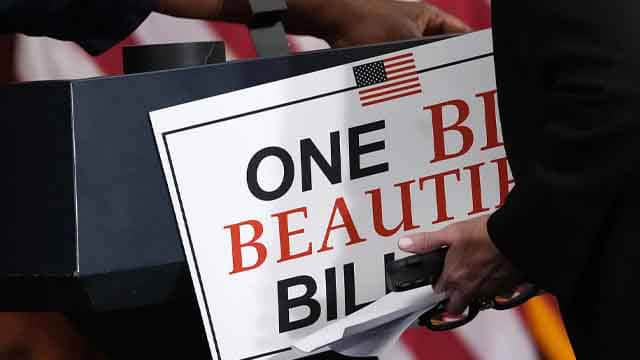headlines
Bitcoin Means Smooth Sailing For Offshore Sports Betting Sites

Local sports betting venues and kiosks are commonplace in much of the world, with several international regions also coming onboard in embracing the pastime.
That said, no sports wagering market is growing more quickly than that in the US, as nearly 20 states have legalized the activity since the Supreme Court overturn of the Professional and Amateur Sports Protection Act (PASPA, 1992) in mid-2018.
In fact, according to CNBC, more than half of Americans live in states that will offer regulated sports betting within the next year or two.
However, even as locally regulated betting shops and domestically operated Internet sportsbooks come online, the options provided for by offshore betting sites remain superior for most bettors in most areas.
The reason for this is simple: Bitcoin support.
No domestic sportsbook in the US or any other country currently accepts Bitcoin (BTC) as a banking option, meaning that you cannot deposit or withdraw with the popular cryptocurrency at these venues.
For many bettors and punters, that’s a deal breaker, as Bitcoin is fast becoming a major industry unto itself, threatening to eclipse many online payment platforms the world over.
To be certain, Bitcoin and other cryptocurrency (aka altcoin) support is not the only reason to use offshore betting sites instead of local domestic options. However, it’s arguably the most compelling reason, and it remains so for both the US and international markets.
Benefits of Bitcoin
There are several overarching reasons to use Bitcoin when patronizing an offshore sports betting service, which is why so many people are turning to the revolutionary non-fiat currency alternative.
While some of BTC’s selling points may not appeal to or seem mission critical for all users, the aggregate of features on offer demonstrate how Bitcoin remains in a class of its own re electronic financial transactions.
- No transaction fees – When you use BTC to deposit or withdraw at offshore betting sites, there are no added transaction fees. The only transfer surcharges you will ever pay with Bitcoin are those natively assigned by the cryptocurrency itself, and these usually amount to pennies at most.
- Next-level security – Bitcoin offers the best data security measures of any financial product – or any electronic product – in the world. Bitcoin is said to be quantum hacking resistant, and the open ledger blockchain technology originated by BTC is the gold standard in encryption and fraud prevention.
- Greater anonymity – Bitcoin is not fully anonymous, but it offers greater anonymity than any banking product on the market. Bitcoin uses numerical wallet addresses – not identities – to send and receive money, and online gamblers value their privacy to a high degree. The old saying is “The Internet is forever.” With BTC, privacy is paramount.
- Accepted worldwide – Bitcoin is accepted worldwide, and it can be sent person-to-person, person-to-business, business-to-person, or business-to-business quickly and easily. There are no banks to hold up your transfers and make you wait days when you want to bet on tonight’s game or match, and there are no watchdogs sniffing around to delay or intercept your private BTC transfers.
- Larger deposit bonuses (US, CAN only) – For US and Canadian sports bettors, Bitcoin deposits come with the online betting industry’s biggest promotions. While those in other countries cannot take advantage of these at this time, they’re still a huge bonus (literally!) for eligible bettors.
- Same-day withdrawals – Bitcoin is the only way to receive same-day withdrawals from major online betting sites. Other payouts, regardless of the type (bank wire, money order, courier check, etc.) will all take at least 3-5 days, but Bitcoin withdrawals will typically show up in your wallet within an hour or two.
Despite its efficacy for online gambling and sports betting, Bitcoin isn’t going to be right for everyone, and many bettors who are used to dealing with fiat money or traditional credit/debit banking are trepidatious to get into a new form of technical currency.
That said, the main issue holding bettors back from embracing BTC is the initial buy-in process. In most markets, including the US, new Bitcoin users have to go through a lengthy acquisition process that can take up to 10 days.
Fortunately, there is a workaround for this.
In the US, new users can get Bitcoin in just a few minutes by using the Zelle-to-Bitcoin process. Zelle is a product of the US banking industry, and most bank account holders already have access to Zelle. Via this instant transfer system, would-be crypto bettors can use Zelle to purchase BTC at a private exchange called LocalBitcoins.com.
This reduces the initial buy-in from days to minutes, and LocalBitcoins does business in more than 200 countries around the world. This gives international punters the same fast way to get their hands on BTC and transfer it to their betting sites of choice.
How To Buy Bitcoin At LocalBitcoins
The steps to purchase BTC quickly and easily at LocalBitcoins follow, showing the process for American bettors. However, regardless of the country you’re in, the main procedure will be largely the same. (Some US-centric books will walk their customers through the Zelle-to-BTC process from their cashier/deposit pages.)
- Create a free account at a reputable offshore sportsbook.
- Create a free account at LocalBitcoins.com.
- Use Zelle (US bettors) or another instant transfer product (International bettors) to purchase BTC from a private seller on LocalBitcoins.
- Use the Bitcoin to deposit into your sports betting account.
- Place your bets!
Note: LocalBitcoins, though powered by private buyers and sellers, is very safe to use. The site uses an escrow system to hold any BTC after a sale is agreed to, giving the seller zero opportunity to abscond with your funds.
When regulated, US-based sports betting first became a wide-scale reality in 2018, there was much talk of offshore sportsbooks eventually being hampered by the legislation and the move toward domestic bookmakers.
But this hasn’t been the case, and membership is up across the board at offshore books in the roughly 18 months since PASPA was eliminated. Even in countries that have had domestic books in operation for years, offshore sites thrive.
And Bitcoin remains the biggest reason why.
headlines
The Big Beautiful Bill Increases Taxes On Gambling Winnings and Losses

 The United States just signed into law President Trump’s “Big, Beautiful Bill,” and gamblers have noted that the new legislation changes the tax rate on revenue earned and lost.
The United States just signed into law President Trump’s “Big, Beautiful Bill,” and gamblers have noted that the new legislation changes the tax rate on revenue earned and lost.
The change comes in the form of deductions, whereas bettors can currently deduct all of their losses, the new code will cap loss deductions at 90% starting in 2026. This allows professional and amateur bettors to incur losses year after year and still be liable for taxes on those losses.
How The Bill Could Affect The Online Gambling Industry
Several gambling aficionados have noted that this small change could significantly affect the industry. Professional poker player Phil Galfond stated on X that you can pay more in tax than what you won.
Galfond also said, “A pro who earns $200k/year might have $3m in winnings and $2.8m in losses, which means earning $200k and being taxed as if they earned $480k. This applies to both recreational and professional gamblers.”
Representative Dina Titus, a Democrat from Las Vegas, stated on Wednesday via Twitter that she is working to amend the change. A gaming industry source told the media that while the effects of the tax change are unclear, it will likely affect professional gamblers more than recreational players.
Do Americans Have To Pay Taxes On Offshore Casino Winnings?
Yes, Americans are required to pay taxes on winnings accumulated from offshore betting sites, just as they would for domestic gambling income. According to the IRS, all gambling winnings are taxable, regardless of where they are earned. This requirement also includes lotteries, raffles, horse races, and casinos, whether in the U.S. or abroad.
In recent years, the U.S. has expanded its online and in-person gambling options following the repeal of the Professional and Amateur Sports Protection Act (PASPA). Currently, 38 states and Washington, D.C., have enacted laws allowing residents and visitors over the legal gambling age to place wagers on sports.
Only 30 U.S. states have authorized online sports betting apps, but additional legislation on the docket could increase that number by the end of the year.
Are Offshore Betting Sites Legal In The USA?
Technically, yes, because there are no federal laws that forbid their use or restrict their access. Some states have taken steps to protect their residents’ income by asking popular offshore sites to cease accepting players; however, no laws have been enacted to restrict their access specifically.
headlines
AU Influencers Warned Against Promoting Gambling Sites

 The Australian Communications and Media Authority (ACMA) has warned social media stars against promoting illegal gambling sites online as they could face multi-million-dollar fines in the country.
The Australian Communications and Media Authority (ACMA) has warned social media stars against promoting illegal gambling sites online as they could face multi-million-dollar fines in the country.
Recently, influencers have increasingly used Instagram, TikTok, and Facebook to promote unlicensed online casinos and gambling services. In today’s modern world, online sites have become less authoritarian and do not moderate what account holders post unless they blatantly break the terms and conditions.
While offshore gambling from licensed sites is not illegal, numerous other sites that are not licensed will accept AU players.
AU Gambling Laws
According to the Interactive Gambling Act 2001, only licensed operators can provide online sports betting and specific lotteries within Australia. All other types of online gambling, including casino games such as slot machines, blackjack, and in-play sports betting, are prohibited.
ACMA has noted an increase in influencers live-streaming on unlicensed platforms, linking illegal gambling sites, and promoting giveaways related to these services. The ACMA has recently warned that promoting or facilitating illegal gambling could result in penalties up to AU$2.5m (£1.1m).
Licensed Offshore Gambling Sites
Offshore casinos operate legally from their country of origin and have been accepting players from around the world since the early 2000s. Trusted regulatory agencies license legitimate offshore betting sites, which are subject to regular compliance checks.
Based on our observations, online casinos tend to provide more attractive bonus offers and promotions than local casinos in Australia. Although each territory has at least one casino, they are not as readily accessible as online services. Since the law does not deem online gambling illegal from international brands outside the country, many players turn to better resources.
Can I Trust An Offshore Casino?
Offshore casinos are reliable, provided you play at a licensed site. Since they function outside Australian jurisdiction, local gaming authorities do not regulate them, meaning there is no legal recourse available if issues arise. However, many offshore casinos hold licenses from international bodies such as Curacao eGaming or the Panama Gaming Commission, and many have established strong reputations for fairness, prompt payouts, and robust security.
To safeguard your interests when considering an offshore casino:
- Verify a license
- Research independent reviews
- Verify secure banking options
- Be aware of red flags (No SSL, No player protections)
headlines
No Sports Betting Bill For GA; Offshore Gambling Continues

 The state of Georgia has long been one of the top markets for offshore betting sites. It is the eighth most populated state in the US and currently has no domestic wagering options.
The state of Georgia has long been one of the top markets for offshore betting sites. It is the eighth most populated state in the US and currently has no domestic wagering options.
While prominent Georgians were hoping to pass a new bill allowing domestic sportsbooks, the state legislature has elected to forego voting for yet another legislative session.
House Bill 686 was a legislative act designed to permit retail and mobile sports wagering by extending the Georgia Lottery’s authority. The adjacent House Resolution 450 would have also put the issue before voters; however, both the Bill and the Resolution are dead.
Rep. Chuck Martin of Alpharetta told the media that the legislation came in late, and lawmakers weren’t there yet. He also stated, “We’ll keep working with people and trying to do what’s in the state’s best interest.”
Georgia’s Sportsbook Potential
Georgia has over 11 million residents and is considered a top legislative target for domestic sportsbooks alongside California and Texas. Today, 39 states (+ Washington D.C.) have domestic sports betting options.
With three professional sports teams and several prominent college teams, Georgia could benefit from the additional revenue generated by licensing domestic sportsbooks. Additionally, several polls conducted throughout the state indicate that most residents favor passing domestic sports betting bills.
Online Sports Betting For GA residents
The state of Georgia has been allowing offshore sportsbooks to service their players since the late 1990s, as no laws make them illegal. While it is technically not legal, no laws forbid their access or create punishments for gambling online.
It is estimated that nearly 300,000 online sports betting accounts will remain active among GA residents in 2025. Popular wagering options include the NFL, NCAA, MLS, and NBA, as the state has a professional team in each of those leagues.
Until a domestic sports betting bill is passed in Georgia, Georgians only have the offshore option. While some people are wary of offshore sites, their concerns are often unwarranted, as the sites we vet and recommend adhere to tougher regulations from world-renowned gaming authorities that go above and beyond to ensure player protection.
However, if you choose to gamble online, make sure that you start small and never wager more than you can afford to lose. There is a reason so many of the sites we play and recommend have been around for several decades, and it’s not because they rip people off; it’s because they offer a quality service and fast “real money” payouts.
-

 headlines6 years ago
headlines6 years ago‘Game of Thrones’ bettors win big at offshore betting sites
-

 headlines6 years ago
headlines6 years agoHow To Know If An Offshore Gambling Site Can Be Trusted
-

 headlines6 years ago
headlines6 years agoWhy Offshore Betting Sites Will Not Be Affected By New USA Gambling Laws
-

 headlines5 years ago
headlines5 years agoOffshore is Still the Only Political Betting Option for USA Residents
-

 headlines8 years ago
headlines8 years agoUS Sports Betting Market Looking At Expansion
-

 headlines8 years ago
headlines8 years agoHow A Reversal On NJ Sports Betting Case Could Affect Nevada Sportsbook Industry
-

 headlines5 years ago
headlines5 years agoMay Madness: Offshore Betting Giant Bovada Debuts NFL Sim Classic Tournament
-

 headlines5 years ago
headlines5 years agoOffshore Gambling Sites Side-Step Legal Challenges Between States and Native American Tribes










